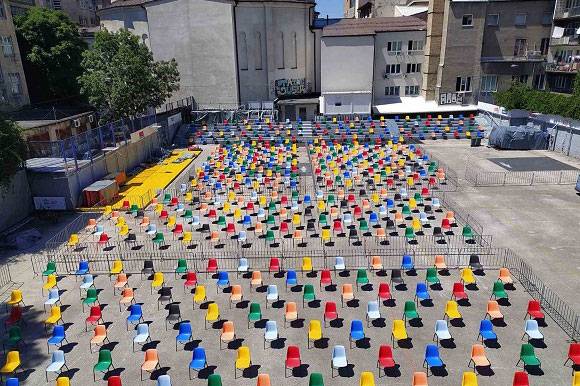When the first edition of the Sarajevo Film Festival was organised in 1995, it seemed like it was an impossible task. Still, the festival was held in a city under siege and in the following 25 years it became one of the most important film events in South-East Europe, constantly leading the way and challenging the firmly set values and ways both in film and culture.
Knowing this, it is not surprising that the 26th Sarajevo Film Festival will be held despite the latest crisis. This year, the festival is giving up its fancy red-carpet protocol and screenings in the Sarajevo National Theatre. Instead, the screenings will be held mostly in open-air cinemas, Raiffeisen Summer Cinema, dm Summer Screen, Summer Cinema “Safet Zajko”, Summer Cinema Stari Grad and in the Bosnian Cultural Centre and Cinema Meeting Point, as well as in the two smaller venues outside the city centre.
One of the additions to this year’s edition is an open-air cinema on a square in Mostar, where part of the programme will be screened, too.
There will be no parties or large social gatherings this year and the organisers have already announced a set of very strict measures for preventing the further spread of the virus.
Also, a large part of the festival will be held online including several programmes and the CineLink Industry Days almost completely.
Film industry in Bosnia and Herzegovina has mostly been halted since March 2020, but turning to open-air events seems to be providing an alternative way to enjoy cinema. A smaller, Sarajevo-based festival, the Youth Film Festival OFF, was organised on several open-air locations from 24 to 29 July 2020, following a successful experiment they made with drive-in cinema in Sarajevo.
Drive-in and open-air screenings have been planned as part of the second edition of the Avantura Film Festivala Avant&Una from 5 to 8 August 2020 in Bihać, too.




















